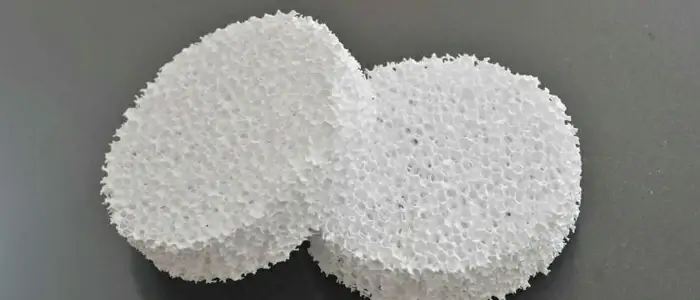If you’re dealing with filtration in extreme conditions—whether it’s searing hot smoke, abrasive particles, or aggressive chemicals—you’ve likely hit the limits of what traditional metal or polymer filters can handle. I’ve been there. That’s when I discovered the game-changing potential of industrial ceramic filters.
These aren’t your everyday filters. They are engineered components designed to perform where others fail. In this guide, I’ll share my insights into what ceramic filters are, why their porous ceramic structure is so effective, and the critical applications they revolutionize.
What is a Ceramic Filter? Beyond the Basic Concept
At its core, an industrial ceramic filter is a permeable structure made from advanced ceramic materials like silicon carbide (SiC) or alumina oxide. Through a specialized manufacturing process, they are created with a network of interconnected pores. This porosity can be precisely controlled, allowing them to trap particles of specific sizes while letting the fluid (gas or liquid) pass through.
From my experience, the magic lies in the material. Unlike plastic that melts or metal that corrodes, ceramic filters bring a unique combination of properties to the table:
-
High-Temperature Resistance: They can operate continuously in environments exceeding 1000°C, making them ideal for hot gas filtration.
-
Superior Chemical Inertness: They withstand corrosive acids, alkalis, and solvents with ease.
-
Excellent Mechanical Strength: They resist abrasion from relentless particle impact, ensuring a long service life.
Key Applications: Where Ceramic Filters Are Indispensable
Here’s a look at some of the most critical uses of these filters that I’ve encountered.
Metal Casting and Molten Metal Filtration
This is a classic application. Ceramic foam filters are placed in the gating system of foundries. As molten aluminum or iron flows through them, they effectively capture non-metallic inclusions like slag and oxides. I’ve seen firsthand how this dramatically improves the quality and mechanical properties of the final castings, reducing defects. It’s a non-negotiable step for high-integrity components in aerospace and automotive industries.

High-Temperature Gas Cleaning (Off-gas Treatment)
In incinerators, coal gasification plants, and cement kilns, flue gases are hot and laden with fine, abrasive dust. Candle filters made from silicon carbide are the go-to solution. They can be installed directly in the hot gas stream, removing particulate matter with efficiency rates over 99.9%. This not only protects downstream equipment but also meets stringent environmental emission standards. The ability to operate at temperature eliminates the need for costly gas cooling systems.
Chemical and Process Industry
When filtering aggressive chemicals, the filter itself must not contaminate the product or degrade. Porous ceramic filters are perfect for this. They are used to clarify acids, purify process water, and separate catalysts. Their durability means less frequent change-outs, which translates to lower maintenance costs and reduced downtime—a significant advantage for plant managers.
Water and Wastewater Treatment
While polymer membranes are common, ceramic membranes offer a robust alternative for challenging water treatment applications. They can be backwashed and chemically cleaned aggressively, handling high-solid loads and lasting for years. This makes them excellent for industrial wastewater treatment and producing ultrapure water for electronics or pharmaceuticals.
The Advantages: Why Choose a Ceramic Filter?
Based on my experience, here’s the bottom-line benefit summary:
-
Long Life and Durability: Their resistance to heat, wear, and corrosion means a much longer operational life compared to alternatives.
-
Consistent Performance: The pore structure is stable, providing reliable filtration efficiency throughout the filter’s life.
-
Cost-Effectiveness Over Time: While the initial investment might be higher than a metal filter, the total cost of ownership is often lower due to reduced replacement frequency and maintenance.
Conclusion
If your operations involve harsh conditions that push conventional filters to their breaking point, it’s time to consider industrial ceramic filters. They are a premium solution that delivers unmatched reliability and efficiency. Investing in them isn’t just about buying a filter; it’s about ensuring process stability, product quality, and long-term operational savings.

